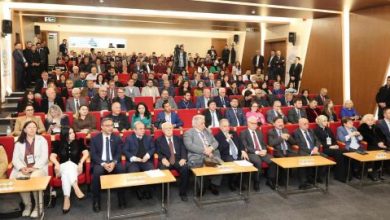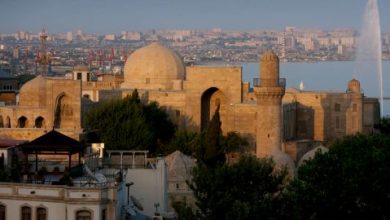Pain births light from endless time

Marin Lazarov is one of those poetic voices from Bulgaria that perceive time as an open wound, which nevertheless gives birth to light from the depths of pain
[Hailing from Bulgaria, Marin Angel Lazarov has three higher education degrees: philosophy, child psychology, and theology. He has 55 books to his credit, 35 of which contain his poetic translations. He has translated about 4,000 poems written by 185 poets and poetess who lived and/or live around the world. He has lived and worked in 17 countries and is fluent in seven languages. He has read more than 20,000 books in his lifetime.]
By Sheriff Alko | Tirana – Albania
Marin Lazarov (Amata) is one of those poetic voices that perceive time as an open wound, which nevertheless gives birth to light from the depths of pain. His poetry is a kind of spiritual chronicle of the late 20th and early 21st centuries, where the crises of Bulgarian history are intertwined with the fate of a man searching for meaning in a morally and spiritually devastated world.
At the heart of his work is anxiety – not as a weakness, but as a form of deep awareness. This anxiety stems both from the experience of communist and post-communist reality and from metaphysical reflection on the fate of man. It permeates every verse, giving Lazarov’s poetry an extraordinary existential charge. Through the contrast between the “Bulgarian state” (active evil) and the “Bulgarian people” (passive light), the poet seeks the roots of a national spirit that has survived oppression and ideological deformation.
Marin Lazarov’s patriotism is not political, but spiritual. He loves Bulgaria as a mystical, wounded being that still holds the seed of light within itself. In this sense, his love for his homeland is a form of universal love, similar to love for humanity, for pain, for existence itself.
The image of the Angel in his poetry appears as a symbol of transformation: a person who must be “ground” in order to become bread for others. This metaphor sums up the entire theological aspect of his work: a person who suffers in order to become valuable to the world, to find meaning through pain.
His poems also convey a longing for lost childhood, a nostalgia for former innocence, which can now only be restored through poetic memory. But, as he himself emphasizes, the “awakening of the soul” is painful, and yet it is only through this awakening that a person becomes truly human.
In Lazarov’s poetry, the sickness of the soul is a creative state, a “hell” that does not condemn but purifies. He sees suffering as the “zero point” of consciousness, from which the creative process begins. Therefore, his poetry oscillates between ecstasy and despair, between hope for resurrection and the conviction that the world is doomed to repeat its absurdity.
In theological and philosophical terms, Lazarov stands on the fine line between Orthodoxy and Stoicism: he seeks God, but often finds only fate; he accepts suffering, but does not give up. Like Seneca, he sees suffering as a worthy deed, a trial that purifies the soul.
At the end of his life and creative work, one can clearly sense the fatigue of a man who has given so much: not only poems, but also parts of himself. When the poet admits that he can no longer write, it is not silence, but another form of poetry – the poetry of the soul, which is already an “open window to God.”
An academic examination of the work of a poet such as Marin Lazarov (Amata) is the most worthy way to pay tribute to his literary, philosophical and spiritual value.
Theological and existential dimensions in the poetry of Marin Lazarov (Amata) – A critical look at the author’s poetic and philosophical worldview
Marin A. Lazarov (Amata), born on 24 April 1961, occupies a special place in contemporary Bulgarian literature as a poet who combines historical experience with metaphysical contemplation. The author of over a thousand poems, Lazarov is a rare voice that combines national sensitivity, theological reflection, and deep self-analysis of the human condition in the modern era. His poetry, imbued with anxiety and an attempt to find meaning in the ruins of history, appears as a spiritual journey from absurdity to transcendence.
- The poetics of anxiety and historical experience
At the heart of Lazarov’s work lies a motif of existential anxiety, which appears not only as a reaction to the socio-political reality of the communist period, but also as a permanent dimension of human consciousness. The poet is distinguished by his ability to perceive history as a spiritual drama, where the conflict between the “Bulgarian state” and “Bulgarian nationality” takes on symbolic meaning: the former represents active evil, the latter – passive light awaiting salvation. This duality, which has its origins in the historical experience of the 20th century, takes his poetry beyond national borders, transforming it into a universal reflection on the fate of a person oppressed by structures alien to his spiritual nature.
- The nature of poetic patriotism
Patriotism in Marin Lazarov’s poetry is not ideological or political, but metaphysical. He sees Bulgaria not as a state reality, but as a spiritual being, an “ethnic substance” that carries within itself the potential for light and love. This love for the homeland is an act of salvation, an attempt to restore the lost person through love for one’s neighbor. In this sense, his poetry rises to the level of the theology of human love, where national sentiment is transformed into a way of affirming the universal spirit of man.
- The theological dimension and symbolism of the angel
The image of the Angel is one of the most important symbols in Lazarov’s poetic system. In his view, man must be “ground” like wheat in order to become bread — a metaphor that translates the creative act and human suffering into the realm of sacrifice. This symbol embodies the process of spiritual transformation, through which pain acquires meaning and man approaches the divine.
Lazarov’s poetry is full of allusions to Orthodox theology, but it is in constant tension between faith in divine reality and a sense of the infinity of human destiny. This ambivalence makes his poetry a space for dialogue between God and man, between prayer and doubt.
- Awareness of loss and the function of pain
Another important element of Lazarov’s work is the experience of losing childhood and separation from former innocence. His poetry often turns into a melancholic retrospective of the simple and pure world of the beginning, which now can only exist as a poetic memory. However, this return to the past is not nostalgic, but serves as a mechanism for the “awakening of the soul,” a painful but necessary process of humanization.
In this sense, spiritual illness, depression and anxiety are not signs of weakness, but forms of creative vitality. Marin Lazarov defines hell as the “zero point” of consciousness, from which a person can be resurrected and regain their human sensitivity.
- Between Stoicism and Orthodox Theology
Philosophically, Lazarov’s poetry walks a fine line between ancient Stoicism and Orthodox mysticism. Like Seneca, he accepts fate and pain as a natural part of existence, but tries to give them meaning in the light of faith.
This combination gives his poetry an ethical dimension, where patience and humility in the face of suffering become profound spiritual acts. Thus, Marina Lazarova’s poetry rises to both an anthropological and theological level, placing man at the centre of the drama of existence and salvation.
…and in conclusion
Marina Lazarova’s (Amata) work is a rare synthesis of poetry, philosophy and theology. It testifies to a poet who sees literature not as a means of aesthetic self-expression, but as an act of salvation for herself and others. Through anxiety, loss, love and shaky faith, he manages to create a poetic universe where man and God meet at the border between pain and light.
In the end, his final silence is not a sign of exhaustion, but a transition to another creative space — the space of eternity, where words become prayer and poetic revelations.
_________________




